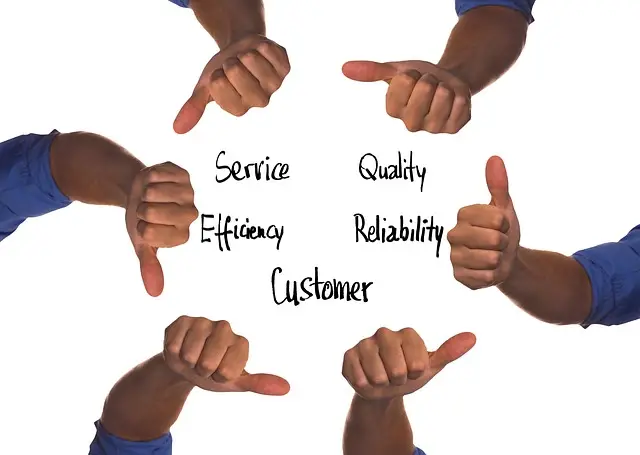Introduction
Importance of tax services in today’s economy
In today’s complex and ever-changing economic landscape, tax services play a crucial role. With constantly evolving tax laws and regulations, individuals and businesses alike need professional help to navigate their tax obligations and save money.
Opportunities in the tax industry
The tax industry offers numerous opportunities for entrepreneurs looking to start their own business. As long as there are taxes, there will be a demand for tax professionals. This makes the tax industry a relatively stable and potentially lucrative choice for aspiring business owners.
Overview of the process of starting a tax business
Starting a tax business involves several steps, including conducting market research, creating a business plan, fulfilling legal requirements, setting up an office, building a team, marketing your services, and providing excellent customer service. In this article, we’ll guide you through each of these steps to help you successfully launch your tax business.

Market Research and Planning
A. Analyzing the tax industry landscape
1. Local competition
Before starting your tax business, it’s essential to research your local competition. Determine the number of existing tax firms in your area, their specialties, and the services they offer. This will help you identify gaps in the market and ways to differentiate your new business.
2. Trends and opportunities
Stay updated on trends and opportunities within the tax industry. Monitor tax law changes, technological advancements, and shifts in client expectations. Understanding these trends will help you adapt your business model and stay ahead of the curve.
B. Identifying your target market
1. Small businesses
Small businesses often need specialized tax assistance. Consider targeting this market segment by offering tailored tax services, such as bookkeeping, payroll management, and tax planning.
2. Individuals
Individuals, especially those with complex tax situations or high income, require professional help to navigate their taxes. Offer personalized services to cater to their needs and build long-term relationships.
3. Specialized niches
Explore specialized niches like expats, freelancers, or specific industries. By focusing on a niche market, you can establish your expertise and attract a loyal client base.
C. Creating a business plan

1. Services offered
Determine the tax services you’ll provide, such as tax preparation, tax planning, audit support, tax prep, and financial consulting. Consider any additional services that may set you apart from competitors, like bookkeeping or payroll management.
2. Pricing strategy
Develop a pricing strategy that reflects the value of your services while remaining competitive in the market. Consider factors like your target market, location, and overhead costs when setting prices.
3. Marketing and advertising
Outline your marketing and advertising plans, including your online presence, social media strategy, and networking efforts. A well-rounded marketing approach will help you reach a broader audience and attract new clients.
4. SWOT analysis
Conduct a SWOT (Strengths, Weaknesses, Opportunities, and Threats) analysis to identify your business’s competitive advantages and areas for improvement. This exercise will help you focus your efforts and adapt to challenges as your business grows.
Legal and Regulatory Requirements

A. Choosing a business structure
1. Sole proprietorship
A sole proprietorship is the simplest business structure, with the owner being personally responsible for all business debts and liabilities. It’s easy to set up and requires minimal paperwork.
2. Partnership
A partnership involves two or more people sharing ownership of the business. Partners are personally liable for the business’s debts, and profits are divided according to the partnership agreement.
3. Limited Liability Company (LLC)
An LLC provides limited liability protection, separating the business owner’s personal assets from the business’s debts. This structure combines the flexibility of a partnership with the liability protection of a corporation.
B. Registering your tax business
1. Business name registration
Choose a unique and professional business name, and register it with the appropriate state agency. This will protect your business name and help establish your brand.
2. Obtaining an Employer Identification Number (EIN)
Apply for an EIN from the Internal Revenue Service (IRS). This unique identifier is required for tax purposes and is necessary when using business insurance, hiring employees or opening a business bank account.
C. Licensing and certifications
1. Preparer Tax Identification Number (PTIN)
If you are professional tax preparer or plan to prepare tax returns for clients, you’ll need a PTIN from the IRS. This number is required for all paid tax preparers and must be renewed annually.
2. Enrolled Agent (EA) or Certified Public Accountant (CPA) certifications
Consider obtaining an EA or CPA certification to enhance your credibility and expertise. These certifications demonstrate your knowledge of tax laws and regulations, making you more attractive to potential clients.
3. State and local licensing requirements
Research and comply with any state or local licensing requirements, such as business licenses or permits. These requirements vary by location, so be sure to check with your local government office.
4. Electronic Filing Identification Number (EFIN)
An Electronic Filing Identification Number (EFIN) is a unique identifier assigned by the Internal Revenue Service (IRS) to tax professionals who electronically file tax returns on behalf of their clients. Acquiring an EFIN is essential for operating a tax business, as it allows you to submit tax returns directly to the IRS in a secure and efficient manner.
To obtain an EFIN, you’ll need to complete the following steps:
a. Create an IRS e-Services account: You’ll first need to register for an e-Services account on the IRS website. This account will give you access to the necessary tools and resources for electronic filing.
b. Submit an EFIN application: After setting up your e-Services account, you can apply for an EFIN through the IRS’s e-file application system. You’ll need to provide information about your business, including your Employer Identification Number (EIN) and details about your professional background.
c. Pass a suitability check: The IRS conducts a suitability check to ensure that tax professionals meet the necessary standards to handle sensitive taxpayer information. This check may involve a background investigation, credit history review, and a tax compliance verification.
d. Receive your EFIN: Once your application is approved and you’ve passed the suitability check, the IRS will issue your EFIN, allowing you to start electronically filing tax returns for your clients.
It’s important to maintain good standing with the IRS and comply with all regulations and requirements to ensure that your EFIN remains active and valid.
Setting Up Your Office and Operations

A. Selecting a location
1. Home office
A home office is an affordable option for starting tax preparation businesses, especially if you have limited resources. Ensure you have a designated, quiet space to work and meet with clients, if necessary.
2. Co-working space
Co-working spaces offer a flexible, cost-effective solution for entrepreneurs. They provide a professional environment, networking opportunities, and access to shared amenities like meeting rooms and office equipment.
3. Commercial office space
A commercial office space may be necessary as your business grows and requires a larger, dedicated space. Consider factors like location, accessibility, and cost when choosing the right office for your tax business.
B. Acquiring equipment and software

1. Computer and peripherals
Invest in a reliable computer, printer, and other peripherals to manage your tax business efficiently. Ensure your equipment is up-to-date and secure to protect your clients’ sensitive information.
2. Tax preparation software
Choose a reputable tax preparation software that meets your needs and streamlines your workflow. Look for features like electronic filing, automatic updates, and comprehensive, tax return form support.
3. Office supplies
Stock up on essential office supplies, such as paper, pens, file folders, and mailing materials. Staying organized will help you work more efficiently and present a professional image to clients.
C. Developing efficient workflows
1. Client onboarding
Create a streamlined client onboarding process that includes gathering necessary documentation, setting expectations, and communicating your services. A well-defined onboarding process will help you start each client relationship on the right foot.
2. Document management
Implement a secure and organized document management system for storing and accessing client files. This can be a combination of physical storage and digital solutions, such as cloud-based platforms.
3. Task delegation
As your tax prep business grows, consider delegating tasks to employees or outsourcing specific responsibilities. This will help you manage your workload more effectively and focus on the most critical aspects of your tax business.
Building Your Team

A. Hiring staff
1. Tax preparers
Hire skilled tax preparers who are knowledgeable about tax laws and regulations. Look for tax preparer or individuals with certifications such as Enrolled Agent (EA) or Certified Public Accountant (CPA) to ensure they are well-equipped to handle clients’ needs.
The Income Tax School is a great website to look for potential candidates or upskill your existing ones.
2. Administrative support
Administrative staff can help manage day-to-day tasks, such as answering phone calls, scheduling appointments, and organizing files. This support will free up your time to focus on tax preparation and business growth.
3. Marketing personnel
Consider hiring marketing personnel to help promote your tax business, develop marketing strategies, and manage social media accounts. A strong marketing presence can help attract new clients and increase visibility.
B. Employee training and development

1. Tax laws and regulations
Provide ongoing training for your staff to stay updated on the latest tax laws and regulations. This will help maintain your team’s expertise in tax code and ensure accurate tax preparation for clients.
2. Software proficiency
Ensure your team is proficient in using tax preparation software and other tools necessary for efficient work. Offer training sessions and resources to help employees become familiar with the software.
3. Customer service
Customer service is essential in the tax industry. Train your team on best practices for providing exceptional service, such as active listening, clear communication, and problem-solving skills.
C. Outsourcing options
1. Bookkeeping services
Outsourcing bookkeeping services can help manage your business’s financial and tax records, saving you time and ensuring accuracy. This allows you to focus on your core tax services.
2. Payroll services
Payroll services can manage employee payments, taxes, and benefits, reducing the risk of errors and ensuring compliance with relevant laws and regulations.
3. Marketing agencies
Working with a marketing agency can help you create and execute a comprehensive marketing strategy for your tax business. This may include branding, advertising, and content creation to attract and retain clients.
Marketing and Advertising Your Tax Business

A. Creating a professional website
1. Design and user experience
Develop a visually appealing and easy-to-navigate website that showcases your tax services. Ensure it’s mobile-friendly and provides a seamless user experience for potential clients.
2. Content creation and SEO
Create informative and engaging content that showcases your expertise in the tax industry. Implement SEO strategies to improve your website’s visibility in search engine results and drive organic traffic.
3. Testimonials and case studies
Include client testimonials and case studies on your website to demonstrate your track record of success and build credibility with potential clients.
B. Utilizing social media platforms

1. Facebook, Twitter, LinkedIn
Establish a presence on popular social media platforms to increase visibility and engage with potential clients. Share relevant content, updates, and promotions to attract new customers.
2. Creating engaging content
Post informative and engaging content that resonates with your target audience. This could include tax tips, industry news, and behind-the-scenes glimpses of your team.
3. Targeted advertising
Take advantage of targeted advertising options on social media platforms to reach potential clients in your niche. This can help increase brand awareness and generate leads.
C. Networking and community involvement
1. Local business associations
Join local business associations to connect with other professionals and potential clients. Participate in events and workshops to showcase your expertise and strengthen relationships.
2. Chamber of Commerce
Get involved with your local Chamber of Commerce to access resources, networking opportunities, and business support services. This can help build your reputation in the community and attract clients.
3. Community events and sponsorships
Participate in community events and sponsor local organizations to increase brand visibility and demonstrate your commitment to the community. This can help create a positive image for your tax business and attract new clients.
Providing Excellent Customer Service

A. Building strong client relationships
1. Communication and responsiveness
Prioritize open and timely communication with clients, responding promptly to their inquiries and concerns. Keep clients informed about the progress of their tax matters, ensuring they feel valued and well-served.
2. Tailored services
Understand each client’s unique needs and tailor your services accordingly. This personalized approach helps build lasting relationships and ensures client satisfaction.
3. Confidentiality and trust
Handle sensitive client information with the utmost care and maintain strict confidentiality. Building trust is crucial when you start a tax preparation business, as clients need to feel confident that their personal and financial data is secure.
B. Going above and beyond
1. Tax planning and strategy
Offer additional services, such as virtual tax preparation business, planning and strategy consultations, to help clients optimize their financial situation and reduce their tax liabilities. This added value can set your tax business apart from the competition.
2. Audit support
Provide clients with guidance and support in the event of an audit. This assistance can alleviate stress and demonstrate your commitment to helping clients navigate challenging situations.
3. Financial consulting
Expand your services to include financial consulting, offering advice on budgeting, retirement planning, and other financial matters. By providing comprehensive financial solutions, you can strengthen client relationships and grow your business.
Monitoring and Growing Your Tax Business

A. Tracking key performance indicators (KPIs)
1. Revenue growth
Monitor your tax business’s revenue growth to assess its financial health and identify areas for improvement. This KPI provides valuable insight into your business’s overall performance.
2. Client retention
Track client retention rates to measure customer satisfaction and loyalty. High retention rates indicate that you’re meeting or exceeding clients’ expectations and fostering long-term relationships.
3. New client acquisition
Measure the number of new clients acquired to evaluate the effectiveness of your marketing efforts and identify strategies that generate the best results.
B. Adapting to changes in the tax industry
1. Staying informed about tax law changes
Stay up-to-date with the latest tax law changes to ensure your services remain accurate and compliant. Regularly review news, resources, and professional publications related to the tax industry.
2. Continuing education and training
Invest in ongoing education and training for yourself and your team to maintain expertise in the constantly evolving tax field. Pursue relevant certifications and attend industry events to expand your knowledge.
3. Embracing new technology
Adopt new technologies and tools that streamline your tax business’s operations and enhance the client experience. This may include software for your tax preparation services, document management, or client communication.
C. Expanding your services and market reach
1. Offering additional financial services
Grow your tax business by expanding your offerings to include related financial services, such as bookkeeping, payroll, or financial planning. Diversifying your services can attract new clients and increase revenue.
2. Targeting new market segments
Identify and target new market segments that can benefit from your tax services, such as niche industries, remote workers, or international clients. Tailor your marketing efforts to appeal to these specific groups.
3. Opening additional locations
Consider opening additional office locations as your tax business grows. Expanding your physical presence can help increase visibility, attract new clients, and boost your overall market reach.
Tips for Long-Term Success

A. Staying organized and efficient
1. Implementing time management strategies
Use effective time management strategies, such as prioritizing tasks, setting deadlines, and minimizing distractions, to maximize productivity and stay organized in your tax business.
2. Leveraging technology for automation
Embrace technology to automate routine tasks, streamline processes, and improve efficiency. This can include using software for scheduling, invoicing, or client communication.
3. Regularly reviewing and refining processes
Continuously assess your business processes and make adjustments as needed to optimize efficiency, eliminate bottlenecks, and ensure smooth operations.
B. Building a strong reputation
1. Encouraging client referrals
Cultivate strong relationships with your clients and encourage them to refer friends and family to your tax business. Word-of-mouth marketing can be highly effective in building a solid reputation.
2. Soliciting online reviews
Ask satisfied clients to leave online reviews on platforms like Google, Yelp, or social media. Positive reviews can enhance your online presence and attract new clients.
3. Maintaining a consistent and professional brand image
Ensure your brand image is consistent across all touchpoints, including your website, social media, and printed materials. A cohesive and professional image can help build trust and credibility with potential clients.
C. Balancing work and personal life
1. Setting boundaries
Establish clear boundaries between work and personal life to maintain a healthy balance. This may include setting specific work hours or designating a separate workspace at home.
2. Delegating tasks
Delegate tasks to your team members or outsource certain services to free up your time and reduce stress. This allows you to focus on higher-priority tasks and maintain a more manageable workload.
3. Prioritizing self-care and personal development
Invest in your well-being by taking breaks, engaging in hobbies, and practicing self-care. Prioritize personal development through continued education, networking, and staying informed about industry trends.
Conclusion
The tax industry offers significant potential for success, as individuals and businesses alike require tax services year after year. With the right planning, dedication, and execution, starting your own tax preparation business can be a rewarding and profitable venture.
To succeed in the tax industry, it’s crucial to thoroughly plan your business, provide exceptional service to your clients, and remain adaptable to changes in the market and regulations. These key factors will set your tax business apart and help ensure long-term success.
If you’re passionate about helping people navigate the complexities of taxes through your own tax preparation business and have the skills and drive to succeed, now is the time to take the leap and start your own business. With hard work, determination, and a commitment to excellence, you can build a thriving tax practice and make a lasting impact on your clients’ lives.